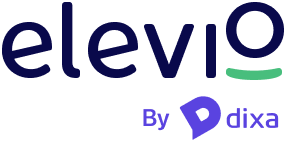We’ve all been there before – wondering if we’re spending our time doing the right things, if what we’re working on is really making a difference, and whether we could make better use of the time that we’ve got.
I’m a firm believer in focusing on your strengths, letting other people focus on theirs, and working with each other to optimise output, effort, and efficiency.
In a simplified way, that’s why Bugherd exists. Bugherd let’s users point out bugs and turns them into reports so that you can track the problem and get it fixed easily and straightforward.
Alan Downie, one of Bugherd’s co-founders, pointed out what the purpose of most software companies should be: creating products that work FOR you when you’re not working. We love this way of thinking as it’s very in-line with elevio’s mission of improving self-help to free up your time. So we sat down with Alan and had a chat about SaaS businesses, customer support (as always), and startups.
Did you plan to start a business? If not, how did Bugherd come about?
Not really, no. I was working as a software consultant and found my time did not scale (or rather there was a limit to how much it could scale). The goal was really to create software products that could work for me when I wasn’t working. BugHerd was one of those products.
How do you find clients and how do they find you?
BugHerd has done a lot of PPC advertising over the years. We’ve also done well with SEO and content marketing.
What’s the best thing that’s happened to you since using Elevio?
We used to have 2 staff basically doing support full time. Their support load is now down to only a couple of hours a day, freeing them up to do other tasks.
What’s the one piece of advice you’d give to people who are about to start a SaaS business?
It’s basic, but “build, measure, learn”. If you’re not measuring and responding to customer feedback, you’re really just guessing.
How relevant is website support to your business compared to other practical business needs?
Support for a SaaS product isn’t just a cost, it’s a core component of getting people onboarded, trialing and buying your software. It’s at least as important as a good landing page, clear onboarding and usable product.
Who were the first people to use your service/product? What have you learnt from each other?
Our earliest customers were startups like us. The biggest lesson from them is that startups don’t like paying for software! As a result, we found that our product was better suited to digital agencies and customers with their own less technical clients.
How do you make sure your customers are happy? How do you define customer happiness and how can you measure it creatively?
We keep a close eye on churn obviously, but regular email contact and requests for feedback help us understand the feeling from our customers. NPS surveys are great for this, but feedback surveys and exit surveys are also great.
Thanks Alan!
If you’re keen to be featured on elevio’s customer support blog reach out and let us know why you’d be a great fit for a case study.


